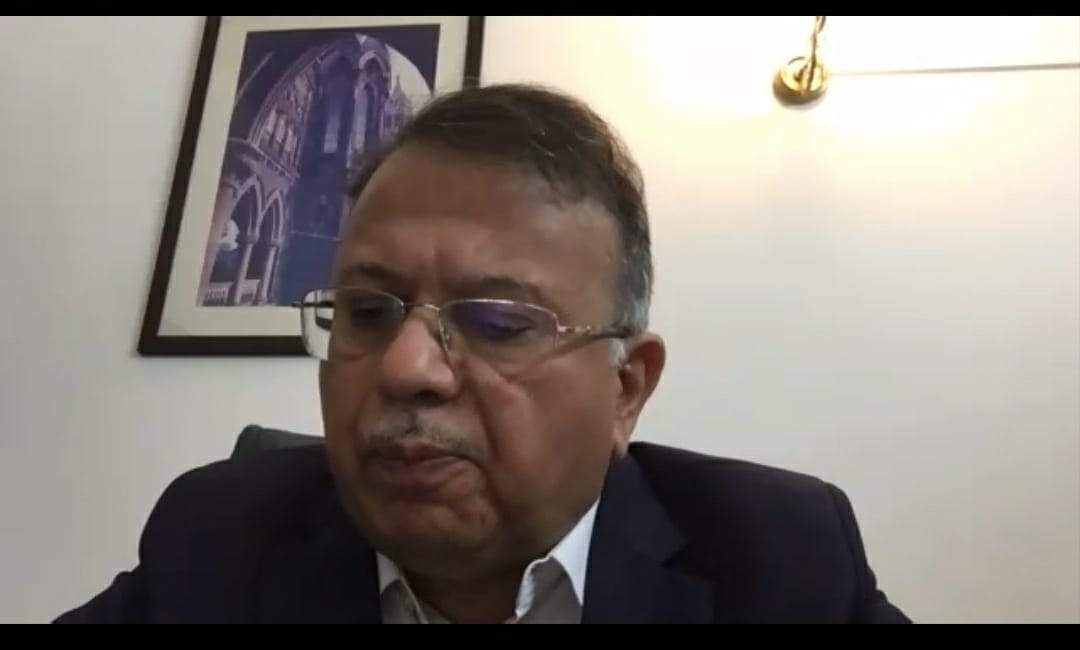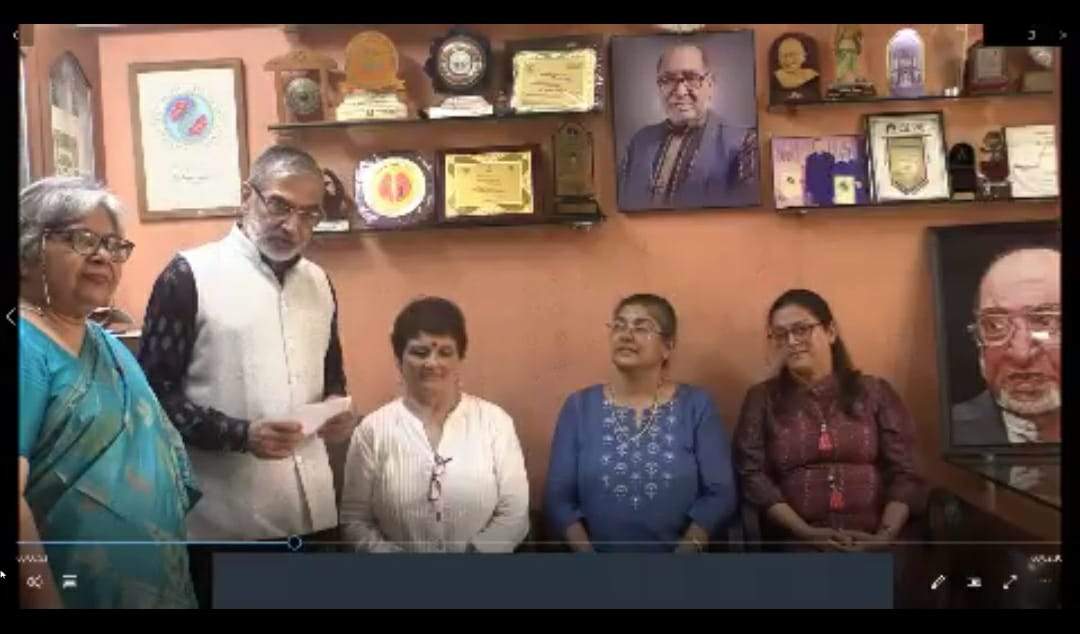Justice Hosbet Suresh memorial lecture organised by CSSS and Bohra Youth, Udaipur
- Justic Hosbet Suresh was posthomously awarded the Dr Asghar Ali Engineer memorial award
- Participants included eminent scholars including Uma Chakravarti, Steven Wilkinson, Harbans Mukhia, former Vice President Hamid Ansari, Justice Abhay Thipsay, Advocate Prashant Bhushan and Justice Madan Lokur.
Justice Hosbet Suresh memorial lecture, “The Supreme Court in Decline: Forgotten Freedoms and Eroded Rights” was organised on 18 September, 2020 collectively by Centre for Study of Society and Secularism, Bohra Youth Sansthan, Central Board of Dawoodi Bohra Community, Citizens for Justice and Peace, Institute for Islamic Studies, Peoples’ Watch and Majlis Law centre.
The Lecture was chaired by senior Advocate Dushyant Dave, President, Supreme Court Bar Association. The Dr. Asghar Ali Engineer Lifetime Achievement Award was conferred posthumously on Justice Hosbet Suresh during the event. In the lecture, Justice Shah took the audience through the role of Supreme Court in different times and raised concern on its role in recent times.

Teesta Setalvad, noted activist, welcomed all participants to the lecture. Commander Mansoor Ali Bohra spoke about Dr. Asghar Ali Engineer. Mihir Desai moderated the Lecture and Henry Tiphagne thanked all the participants.
In his lecture, Justice Shah lamented on the partisan role played by the Supreme Court in the recent times, which is tilting more towards the executive rather than justice and making the executive accountable through constitutional mechanisms and institutions. The Court has failed to protect rights and counter majoritarianism which is the hallmark of a true democracy.
He cited the cases of Sabarimala and Ayodhya judgments where the Supreme Court gave impunity and compromised the principle of rule of law to rule in the favour of the government. In the Ayodhya judgment, the Court, despite acknowledging the illegalities committed in 1949 and 1992, effectively rewarded the wrongdoer.
Justice Shah further stated that on the Kashmir issue the Supreme Court instead of dealing with constitutional issues related to Articles 14, 19 and 21 emerging from the internet and communication shutdown, handed over the issue to executive-led Special Review Committee which contributed to its decline. This has added to the sufferings of the entire population of Jammu and Kashmir on front of health, education, business and economy.
Justice Shah next highlighted another important aspect in the decline of the SC which manifested in its collusion or silence on the issues of freedom of speech and right to protest , which is a democratic right. He gave an example of Citizenship Amendment Act to make his point. The protestors- students, academics and poets were targeted by the state and charged with criminal offences of rioting, unlawful assembly, criminal conspiracy, sedition and invoked provisions of Unlawful Activities Prevention Act (UAPA) in the Delhi riots case. They were labeled as anti-national and accused of “destabilizing the government”, while the Supreme Court was a mute spectator and found reasons to not address the case.
Justice Shah said that the opaque system of “master of the roster” was central in allocation of cases to benches that were favourable to the executive. This has contributed to change in the character of courts from justice centric and focused on the rights of ordinary people to executive courts - courts which delivered judgments favoring the executive. This system thus has eroded the important principle of independence of judiciary enshrined in the Constitution. Justice Shah pointed out that the role of the Chief Justice of India (CJI) was pivotal in creating executive courts.
Justice Shah cited various positive precedents set by Courts and courageous judges from India, UK and US even in the times of war, which protected Constitution and rule of law. He expressed the hope that more such courageous judges will stand up against the executive government.
Advocate Dushyant Dave, Chair, expressed concern over the silence of common citizens, when the vulnerable sections like Muslims and Dalits are killed in India. Movements like the Black Lives Matter campaign triggered by the killing of George Floyd in the US have been missing in India for issues of justice and dignity of common citizens, he pointed out. Judiciary in such scenario has a crucial role but the courageous voices of citizens are vital he urged.
The Lecture was attended by over 300 participants on zoom. The participants included eminent scholars including Uma Chakravarti, Steven Wilkinson, Harbans Mukhia, former Vice President Hamid Ansari, Justice Abhay Thipsay, eminent advocate including Prashant Bhushan and justice Madan Lokur. The Dr. Asghar Ali Memorial Achievement Award, 2020 was handed over by Advocate Irfan Engineer, director of Centre for Study of Society and Secularism to Rajini Sondur, Shalini Prasad and Malini Kanal, daughters of Justice Suresh, who is remembered for his tremendous contribution to the rights of the marginalized and pioneering the people’s tribunes. The Award carried a cash prize of INR 25,000 and a citation.

To join us on Facebook Click Here and Subscribe to UdaipurTimes Broadcast channels on GoogleNews | Telegram | Signal



